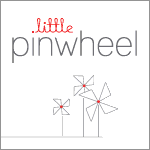
As part of an initial consultation in the clinic, I spend a little time talking about water. How much do you drink? How often do you drink? Are you thirsty? Can you quench your thirst? Do you drink a certain amount because you think you should? And so on. I generally establish one of two things. Either the patient is actually drinking too much water or they don't drink any at all. There doesn't seem to be many that fall in between. So how do you know what enough is?
It is possible to have too much water, although it won't generally cause too much havoc. It will however, dilute the 'good stuff' in your body. This is assuming it's not massive amounts. Large quantities of water are in fact, very harmful, but as a rule so long as you aren't taking in more than your kidneys can handle, you will be fine. I'm really stunned by the amount of patients who tell me they force in 3 Litres per day. I actually wonder what else they have time for between trips to the loo and filling up their water bottles. That's a lot of water! As with most things in life, not one size fits all. The amount of water you require depends on several factors including your weight, how much you exercise, the climate you are in and a few other factors such as breast feeding and medications. I put myself through this: Hydration Calculator. The results showed that I require 2 litres per day, 20% of which may come from foods and so long as I eat a very clean diet, I can get away with 1.7L. Now that’s more like it.
Being unable to quench your thirst is a different matter all together. From a Chinese Medicine viewpoint, it may be an indication that the patient is 'yin deficient' (yin pertaining to fluids and other hydrating matter). In such cases, no amount of water is enough. Because this is a reflection of the internal organs (most likely kidneys), I use herbal formulas and acupuncture to support organ function and nourish the body, which will in turn see the body is well hydrated and able to adequately process fluids.
Every part of your body needs water however the kidneys are the powerhouse that take the biggest beating if you haven't taken enough in. For me as a Natural Fertility Specialist, this is vital, as the kidneys are imperative for healthy reproductive function. Of course, all areas of your body need to be in tip top working order to make babies, but simple changes like drinking enough water, can make all the difference to your reproductive health and wellbeing.
Remember the following and stay well hydrated.
* Coffee, Tea, Soft drinks etc, need not apply. They do not count to your daily water intake - in fact they will make you dehydrated.
* Drinking all daily water intake in one foul swoop just won’t do. Pace yourself.
* I suggest to all patients they set times to drink water, to create a habit. So it might go something like this; upon waking, at 10 am, before lunch, at 2pm, before you leave from work, before dinner and before bed (or whatever works for you). Before you know it, you have consumed your 6-8 glasses in for the day.
* Excessive thirst indicates something isn't right - get it checked out if this applies to you.
* Get the best quality water you can. Filtered tap water is on the top of my list. Bottled water is fine also. Avoid drinking water that has been sitting in plastic bottles for long periods of time, as the toxins of the plastic will surely find their way in!











ok so seriously I drank about a litre less than I should have. whoops! very interesting how it changes according to the climate and other areas of your personal health. love it. thanks for sharing!
ReplyDeletex
How about herbal teas? I drink a lot of those on cool days or in the office aircon.
ReplyDeleteGreat tips Nat-I always feel much better after drinking a lot of water!
ReplyDeleteHerbal teas also count as water! Bonus.
ReplyDeleteA friend of mine found a website on how much water you should be drinking depending on the individual as it varies from person to person
ReplyDeletehttp://nutrition.about.com/library/blwatercalculator.htm
First you need to put your weight in pounds...
Great Manda! Same with the one that I posted, you also need to convert your weight first to pounds. Always remember, these tools are a rough guide, like you said it will vary from person to person.
ReplyDelete